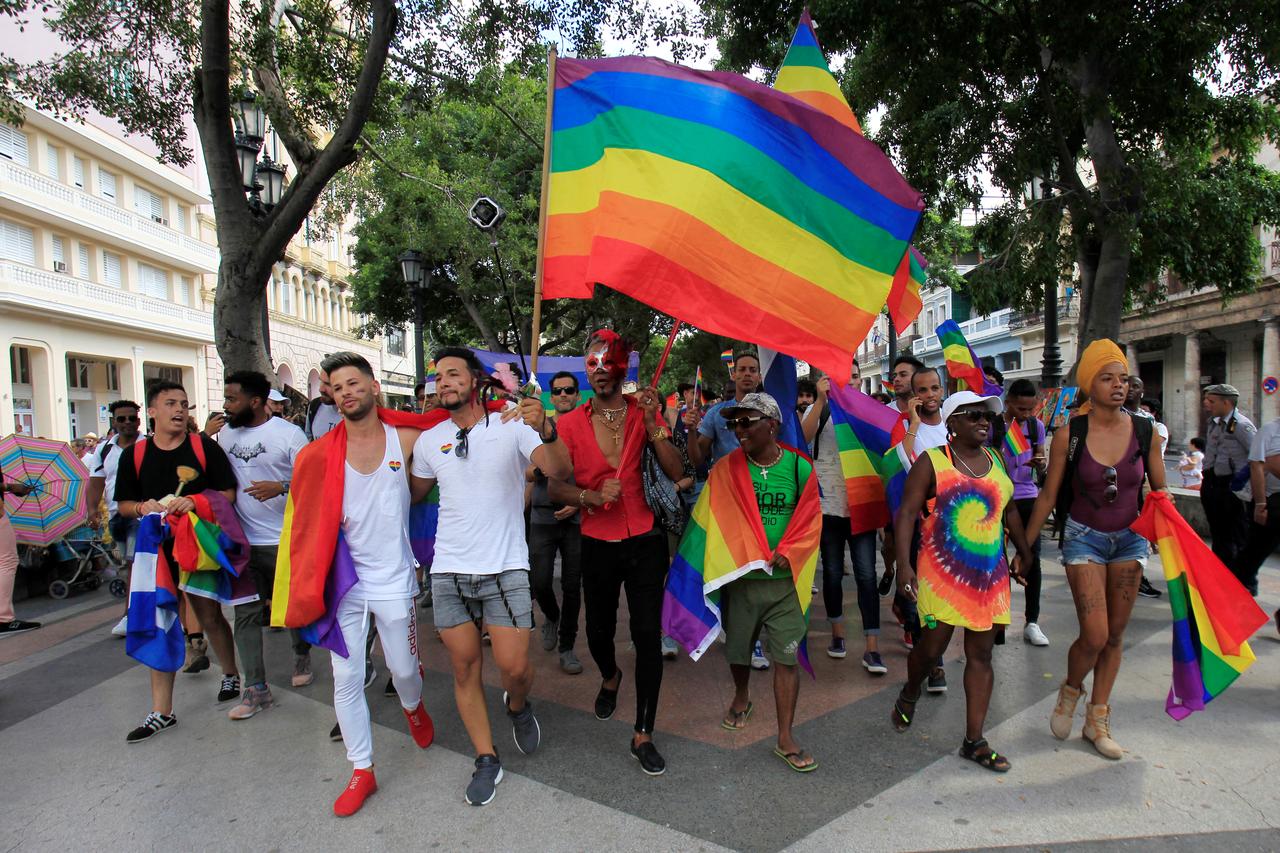HAVANA, (Reuters) – Cuban gay rights activists held an unauthorized independent pride parade in Havana yesterday despite the Communist government warning against it and calling it subversive, an unprecedented show of civil society in the one-party state.
More than a hundred Cubans chanting “long live a diverse Cuba” and carrying rainbow flags joyfully marched nearly one kilometer (0.6 mile) from Havana’s Central Park down to the seafront boulevard before being stopped by dozens of security officials.
At least three activists were arrested by plainclothes policemen while others were ordered to disperse given the activity did not have an official permit.
“This moment marks a before and an after for the lesbian, gay, bisexual and transgender (LGBT) community but also for Cuban civil society more generally,” said independent journalist and LGBT activist Maykel Gonzalez Vivero.
“Social media is playing its role and civil society demonstrated it has strength, and can go out onto the streets if necessary, and from now on the government will have to take that into account.”

This was the second march organized independently of state institutions – hitherto a rare occurrence in Cuba – in just over a month, although the previous one, in defense of animal rights, had received a permit from local authorities.
Activists called for their own parade after the state-run National Center for Sex Education (CENESEX) earlier this week abruptly canceled its 12th annual conga against homophobia – Cuba’s equivalent of gay pride.
CENESEX, headed by Mariela Castro, the daughter of Communist Party leader Raul Castro, said in a statement that certain groups were planning to use the event to undermine the government, emboldened by the escalation of aggression by the Trump administration against Cuba and its leftist ally Venezuela.
The United States has for decades financed often covert programs to promote democracy on the island and undermine the Communist government.
But many LGBT activists said they felt the government was reacting more to pressure from evangelical churches, which have a growing following in Cuba and have campaigned against the expansion of gay rights.
CENESEX denounced the alternative parade as a “provocation” and several activists say they received threats either anonymously on social media or from state security in person not to attend it – not that it stopped them.
“This isn’t a political march, this is a celebration to give the LGBT community visibility,” said Myrna Rosa Padron Dickson.
CIVIL SOCIETY STRENGTHENING?
Activists promoted the march on social networks thanks to the expansion of the internet in Cuba in recent years that has more broadly seen increasing numbers of Cubans mobilize online over certain issues, sometimes apparently managing to influence policy.
The government for example postponed the full implementation of a decree clamping down on the arts after an online campaign protesting the law, and stepped back on regulations governing the private sector after entrepreneurs and experts complained.
So far, however, the government has retained tight control over physical public spaces, mostly restricting marches to expressions of support for the government, like the recent Labor Day parade.
The conga in Havana was an exception that became a regular occurrence, and a reminder that the government, which once sent gays to work camps in the early days of Fidel Castro’s 1959 revolution, had made considerable advances in LGBT rights in recent years.
The country guarantees rights such as free sex-change operations and forbids discrimination on the basis of sexuality, in a region where some countries still have anti-sodomy laws.
Some LGBT activists say they felt the cancellation of the conga was a sign those rights are being eroded, possibly because a recent public consultation over a new constitution revealed that there was more opposition to the community than previously thought.
Many Cubans expressed their opposition to a change in the draft constitution that would have explicitly opened the door to gay marriage.
Evangelical churches also ran unprecedented campaigns against the change, which was eventually watered down.








